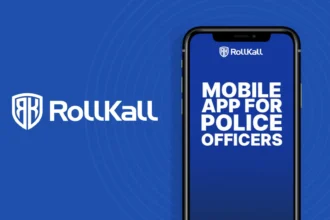Facing a debt lawsuit can be overwhelming, but understanding the steps to potentially dismiss the lawsuit can empower you to take control of the situation. This guide will walk you through actionable strategies to help you get a debt lawsuit dismissed and protect your financial future.
Here’s How to Get a Debt Lawsuit Dismissed :
1. Understand the Debt Lawsuit
A debt lawsuit occurs when a creditor sues you to collect a debt you owe. It’s essential to know why the lawsuit was filed, the amount claimed, and the timeline for responding. Ignoring the lawsuit can lead to a default judgment against you, so it’s crucial to act promptly.
2. Verify the Debt
Requesting debt validation is your first line of defense. Under the Fair Debt Collection Practices Act (FDCPA), you have the right to ask the creditor to verify the debt. Here’s how:
- Send a Written Request: Within 30 days of receiving the lawsuit notice, send a written request to the creditor asking for proof of the debt.
- Review the Validation: Examine the provided information to ensure the debt amount, ownership, and details are accurate.
If the creditor fails to validate the debt, you may have grounds to dismiss the lawsuit.
3. Check the Statute of Limitations
Every state has a statute of limitations that limits the time a creditor has to file a lawsuit. If the statute of limitations has expired, the lawsuit is invalid. Here’s what to do:
- Research State Laws: Find out the statute of limitations for debt collection in your state.
- Compare Dates: Check the last activity date on your debt account. If it exceeds the statute of limitations, you can use this as a defense.
4. Identify Errors in Documentation
Carefully review all documentation provided by the creditor for errors such as incorrect amounts, missing signatures, or incomplete records. Common errors include:
- Mismatched Information: Ensure all account numbers, dates, and amounts match your records.
- Incomplete Paperwork: Look for missing documents or signatures that can weaken the creditor’s case.
5. Assert Your Rights Under the FDCPA
The FDCPA protects consumers from abusive debt collection practices. If the debt collector violated these regulations, it could be grounds for dismissal. Key points to check include:
- Harassment: Excessive phone calls or threats.
- False Representation: Misleading information about the debt or collector.
6. File a Motion to Dismiss
If you find substantial reasons, you can file a motion to dismiss the lawsuit. Here’s how:
- Legal Grounds: Base your motion on issues like lack of standing, expired statute of limitations, or failure to validate the debt.
- Legal Assistance: It’s advisable to seek legal help to draft and file the motion correctly.
7. Settlement Negotiations
Negotiating a settlement with the creditor can sometimes lead to a dismissal. Steps include:
- Propose a Settlement: Offer a reasonable payment plan or lump sum.
- Get It in Writing: Ensure any agreement is documented and signed by both parties.
8. Counterclaims and Defenses
Consider raising counterclaims or defenses if the creditor has violated any laws or if you have other valid defenses:
- FDCPA Violations: File counterclaims for any breaches of the FDCPA.
- Other Defenses: Lack of standing, improper service, or identity theft can be used as defenses.
9. Seek Legal Counsel
Hiring a debt relief attorney can significantly increase your chances of dismissal. Benefits include:
- Expert Advice: Attorneys understand complex debt laws and can provide tailored advice.
- Court Representation: They can represent you in court and handle legal proceedings.
10. Alternative Dispute Resolution
Mediation and arbitration can be effective alternatives to a court trial:
- Mediation: A neutral third party helps both sides reach an agreement.
- Arbitration: An arbitrator reviews the case and makes a binding decision.
11. Last Resort: Bankruptcy
If all else fails, bankruptcy may be an option to consider:
- Types of Bankruptcy: Chapter 7 can discharge debts, while Chapter 13 can reorganize them.
- Consult an Attorney: Bankruptcy has long-term implications, so professional advice is crucial.
Conclusion
Understanding your rights and the legal processes involved can empower you to effectively handle a debt lawsuit. Whether it’s challenging the validity of the debt, negotiating a settlement, or seeking legal counsel, taking proactive steps can help you get a debt lawsuit dismissed and secure your financial future. Remember, taking action promptly and strategically can make all the difference.





